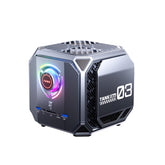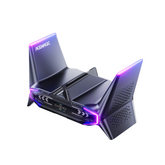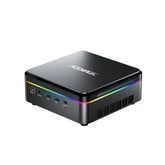Windows 11 Home vs Pro: What’s the Difference and Which One to Choose?

Introduction to Windows 11 Editions
When Microsoft unveiled Windows 11, it came with a fresh, modern interface, better multitasking, enhanced gaming features, and a sharper focus on productivity and security. However, most users quickly realized there were two primary editions available: Windows 11 Home and Windows 11 Pro. At first glance, they might seem almost identical, but under the hood, they cater to very different user needs.
Whether you’re a casual home user, a student, a small business owner, or a corporate IT professional, choosing the right version is crucial—not just in terms of cost, but also capability. This article dives deep into every major difference and consideration between the two.
Key Features: Similarities and Divergences
Let’s begin with an overview of the feature sets. While Windows 11 Home offers a streamlined, user-friendly experience, Windows 11 Pro adds layers of control, security, and business functionality designed for professional environments.
Design and User Experience
Both editions share the same polished Windows 11 interface. That means centered taskbars, rounded corners, Snap Layouts, and integration with Microsoft Widgets. Visually, there’s virtually no difference. If you’re only focused on how the system looks and feels during regular use, either version will serve you well.
However, once you dig into settings and administrative tools, the Pro version starts to reveal its advanced capabilities.
Security: Basic vs Enterprise-Grade
Security is a major dividing line between the two editions. While Windows 11 Home comes with standard protections, such as Windows Defender, Windows Hello, and device encryption, Windows 11 Pro provides significantly enhanced features for users who require more control.
Key Pro-only features include:
- BitLocker Encryption: Offers full-disk encryption to protect sensitive data even if your device is stolen.
- Windows Information Protection (WIP): Helps safeguard against accidental data leaks.
- Group Policy Editor: Allows IT administrators to enforce policies across multiple machines.
- Windows Sandbox: A secure environment for running untrusted applications.
- Remote Desktop Host: Enables you to connect to your PC remotely (Home only allows outbound connections).
These advanced features make Pro more suitable for professional and enterprise use where security is paramount.
System Requirements and Performance
In terms of hardware requirements, there’s no difference between Windows 11 Home and Pro. Both require:
| Specification | Requirement |
|---|---|
| Processor | 1GHz or faster with 2+ cores |
| RAM | 4GB minimum |
| Storage | 64GB or more |
| Firmware | UEFI, Secure Boot capable |
| TPM | Trusted Platform Module version 2.0 |
| Graphics | DirectX 12 compatible with WDDM 2.0 driver |
Performance-wise, you’re unlikely to notice any major differences in day-to-day tasks like web browsing, document editing, or video streaming. However, Windows 11 Pro includes additional background services related to its business features, which could lead to slightly higher memory usage—but this is negligible on modern hardware.

Who Is Each Version For?
Your choice between Windows 11 Home vs Pro ultimately comes down to what kind of user you are.
Windows 11 Home Is Best For:
- Casual users who browse the web, stream content, and use office software.
- Students and families need a stable, secure operating system without unnecessary enterprise features.
- Gamers who don’t need corporate security or remote access tools.
Windows 11 Pro Is Best For:
- Freelancers and professionals working with confidential data.
- Small and medium businesses that need device management and domain join support.
- Developers or IT professionals who use virtual machines, remote access, and group policies.
In short, if your day-to-day computer activities don’t involve advanced security or administrative tasks, Home is enough. But if you need to manage multiple devices, ensure data privacy, or integrate with corporate networks, Pro is the smarter choice.
Pricing: Is Pro Worth the Extra Cost?
| Edition | Retail Price (Approx.) |
|---|---|
| Windows 11 Home | $139 |
| Windows 11 Pro | $199 |
The $60 difference may seem steep, especially if you’re unsure whether you’ll use the Pro-only features. However, for business users, that price can translate to increased productivity, stronger data security, and greater flexibility.
Microsoft also offers upgrade paths if you start with Home and later decide you need Pro.
Upgrading from Home to Pro
Upgrading is surprisingly simple:
- Open Settings > System > Activation.
- Select Upgrade your edition of Windows.
- Enter a valid Pro product key or purchase directly from the Microsoft Store.
The upgrade keeps all your apps, files, and settings intact—no reinstallation is required.
If you foresee needing Pro features shortly (e.g., starting a business, working remotely), starting with Home and upgrading later is a valid and cost-effective strategy.

Licensing and Activation: Retail vs OEM
Windows licenses come in two flavors:
- Retail Licenses: Can be transferred to another PC. These are ideal for personal users who may change or upgrade hardware.
- OEM Licenses: Pre-installed on PCs by manufacturers. These are tied to the original hardware and cannot be transferred.
Windows 11 Pro is often bundled in business-grade laptops and desktops via OEM licensing. If flexibility is important to you, go with the retail version—especially if you build or upgrade your PC.
In-Depth Analysis: Pros and Cons of Windows 11 Home & Pro
Windows 11 Home: Detailed Pros and Cons
Pros:
- Affordable Licensing: Lower upfront cost makes it attractive for home users, students, and hobbyists.
- Simplified UI: Fewer admin tools make the interface more streamlined, less cluttered, and easier to use.
- Full Feature Set for Daily Use: Includes Microsoft Store, Widgets, Snap Layouts, DirectStorage, Game Mode, and Windows Hello.
- Better Battery Efficiency (on laptops): Fewer background services mean better energy efficiency on laptops and tablets.
- Fast and Lightweight: Less background processing improves responsiveness on budget or mid-range devices.
Cons:
- No Remote Desktop Host: You can’t access your PC remotely from another location, limiting flexibility for remote workers.
- Lacks BitLocker: Without drive encryption, your sensitive data is at higher risk if your device is lost or stolen.
- No Group Policy Editor: Can’t manage or enforce system-wide settings, a major limitation for families or shared computers.
- No Domain Join Support: Can’t connect to school or work networks that use domain-based authentication.
- Limited Virtualization: Missing native support for Hyper-V and Windows Sandbox, which restricts advanced testing and development work.
- No Windows Update for Business: Less control over when updates are applied, which may interrupt workflows.
Windows 11 Pro: Detailed Pros and Cons
Pros:
- Enterprise-Grade Security: Full BitLocker encryption, Windows Information Protection (WIP), and advanced threat protection features.
- Remote Desktop Hosting: Enables access to your desktop from anywhere, perfect for remote support and off-site work.
- Domain and Azure AD Integration: Seamlessly connect to corporate IT environments with secure user identity management.
- Full Access to Group Policy Editor: Allows granular control over user accounts, app access, update settings, and more.
- Hyper-V and Sandbox Capabilities: Ideal for developers, cybersecurity professionals, and testers who rely on virtual machines.
- MDM Support: Enables Mobile Device Management—vital for businesses that manage fleets of devices.
- More Update Control: Delay or defer updates with Windows Update for Business for increased system stability.
Cons:
- Higher Cost: Not ideal for budget-conscious consumers who don't need the extra features.
- Feature Overhead: For casual users, many features go unused and may introduce unnecessary complexity.
- More Background Services: Slightly more system resources are used by default, though this is negligible on modern hardware.

Gaming: Is There a Real Difference?
For gamers, both editions offer the same core benefits:
- DirectStorage for faster game loading
- Auto HDR for better visuals
- Game Mode optimization
So if you’re building a gaming PC, Windows 11 Home is perfectly sufficient unless you’re also streaming, developing, or working in IT. The Pro version doesn’t offer any performance edge in pure gaming terms.
Security: Pro’s Edge for Critical Users
While Windows 11 Home provides great protection for general use, Pro is where security truly shines. If you handle sensitive documents, manage client data, or connect to corporate networks, features like BitLocker and WIP could be vital.
Additionally, Pro allows for full control over updates, letting you delay them or roll them back—something not easily done in the Home edition.
Remote Work & Virtualization
In a post-pandemic world where remote and hybrid work is the norm, Windows 11 Pro provides unmatched flexibility. Its support for Remote Desktop, Hyper-V virtualization, and Azure Active Directory integration make it the ideal platform for telecommuters and IT teams alike.
If you often work remotely or need to access your work PC while traveling, Pro makes that effortless and secure.
Real-World Scenarios
- Emma, a university student, uses her laptop primarily for coursework, streaming, and video calls. She finds Windows 11 Home to be more than adequate and appreciates the lower cost.
- Jake, a freelance accountant, needs to encrypt client files and remotely access his work PC. For him, Windows 11 Pro’s BitLocker and Remote Desktop features are indispensable.
- Lena, an IT manager at a growing startup, deploys Windows 11 Pro across all company machines to maintain control, enforce security policies, and streamline updates via Group Policy.

FAQs: Windows 11 Home vs Pro
What are the main differences between Windows 11 Home and Pro?
Pro includes features like BitLocker, Remote Desktop hosting, domain join, Group Policy, and Hyper-V, which are not available in the Home edition.
Can I use Windows 11 Home for business purposes?
Technically yes, but it's not ideal. Home lacks key enterprise features, making it harder to manage security, devices, and user policies effectively.
How can I upgrade from Home to Pro?
You can upgrade via Settings by entering a Pro product key or buying one from Microsoft. No files or apps will be lost during the upgrade.
Will upgrading to Windows 11 Pro delete my data or apps?
No, the upgrade process is non-destructive. Your existing files, applications, and settings remain unchanged after upgrading.
Does Windows 11 Pro offer better control over updates?
Yes. With Pro, you can defer updates, manage installation timing, and use Windows Update for Business to reduce downtime.
Can I use Remote Desktop with Windows 11 Home?
You can connect to other PCs, but Home can't act as a Remote Desktop host. That feature is only available in the Pro edition.
Does Windows 11 Home support virtualization or Hyper-V?
No. Hyper-V, Windows Sandbox, and other native virtualization features are only available in the Pro edition.
Can I join a company domain or use Azure AD on Home?
No. These capabilities are exclusive to Windows 11 Pro and are essential for enterprise-level identity and device management.
Is Windows 11 Pro better for gaming than Home?
Both support the same gaming technologies. Pro offers better multitasking tools, which help when streaming or running multiple apps.
Can I do a clean install of Windows 11 Pro on a Home device?
Yes. Use a bootable USB and Pro key, but note it erases all data. Back up your files before doing a clean installation.
Conclusion: Which One Should You Choose?
If you’re a casual or home user, Windows 11 Home is the better value. It’s simpler, cheaper, and fully capable of supporting your daily computing needs. However, if you’re a professional, business owner, or someone who values security and control, Windows 11 Pro is worth the investment.
Still undecided? Start with Home—you can always upgrade when your needs evolve.







Leave a comment
Please note, comments need to be approved before they are published.